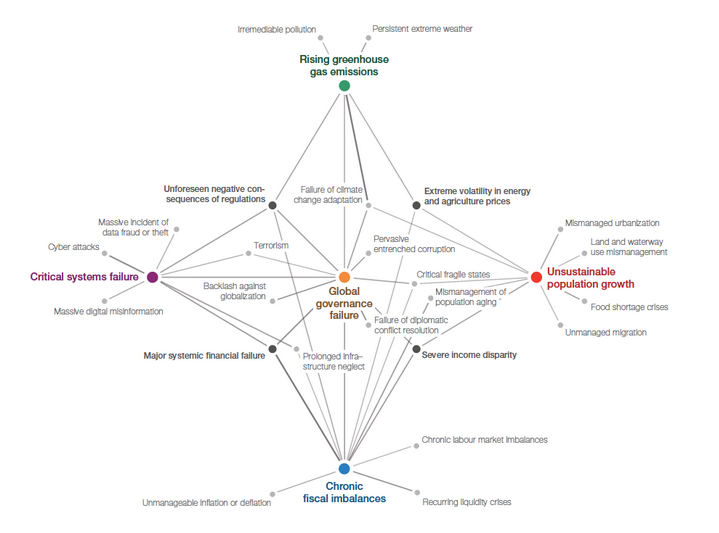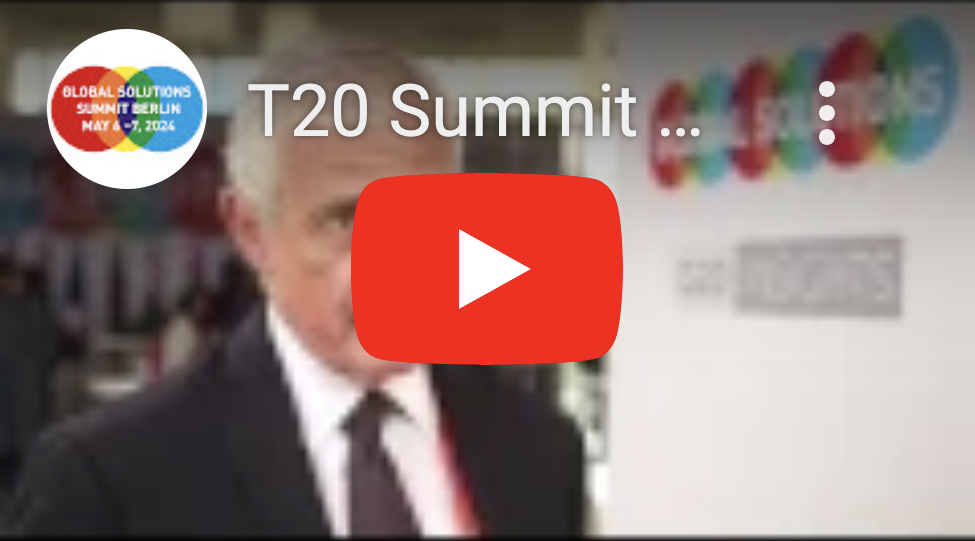About Us
Programmes
- Norms for Global Governance
The FutureWorld Foundation’s lead programme seeks to help clarify the normative basis for better governance of the collective challenges facing humanity, which cannot be addressed satisfactorily by nation states acting independently, and thus require transnational collaboration.
Five sets of challenges have been identified, and discussed extensively in programmes of the World Economic Forum since 2000. These five constitute the FutureWorld Foundation’s Global Agenda for the purposes of this programme.
- Delivering environmentally and socially sustainable economic growth
- Effectively reducing poverty and improve equity
- Addressing the sources of vulnerability and promoting global, national and human security
- Sharing the norms and values that enable global coexistence, while celebrating humanity’s cultural diversity
- Improving the quality of global governance and our global institutions
The World Economic Forum’s Global Risk Network assessed the failure of
global governance as the risk at the nexus of the clusters of political, economic,
societal, technological and environmental risks identified in Global Risks 2012.

Source: World Economic Forum, Global Risk Network, Global Risks 2012
The Norms for Global Governance programme commenced in 2011, in cooperation
with the Bertelsmann Foundation, and was introduced at the Trilogue
Salzburg 2011 and discussed at the Global
Economic Symposium 2011.
Through this programme the FutureWorld Foundation aims to strengthen the collective
action needed to enable more effective transnational governance of those conditions that
must be addressed, across national and corporate boundaries, to avoid or limit crises.
The programme -
(i) enables reflection on the five challenges of the Global Agenda, defined in multidisciplinary
clusters that reflect reality, not academic disciplines like law, economics, sociology and physics
that have emerged from the evolution of Western education; and
(ii) seeks to make explicit – and promote understanding of – the diversity of interests,
priorities and values among the states and blocs that comprise the international
political system, and which frustrate collective action to address the challenges of the
Commons.
Only by tackling these challenges in this way, can we reduce the tension between the democratic
accountability of governments to national electorates, and the need for transnational action to
forestall serious threats, and mitigate global risks.
 In 2012,
in association with the Bertelsmann Foundation, the FutureWorld Foundation has commissioned leading
international research institutes – Brookings Institution
[USA], Chatham House (Royal Institute of
International Affairs) [EU], Asia Society
[China], Institute of Contemporary
Development [Russia], Observer Research
Foundation [India], South African Institute
of International Affairs [sub-Saharan Africa], and Fundação Gétulio Vargas [Brazil] – to prepare and
present a range of national and regional perspectives on the first pillar of the Global Agenda:
In 2012,
in association with the Bertelsmann Foundation, the FutureWorld Foundation has commissioned leading
international research institutes – Brookings Institution
[USA], Chatham House (Royal Institute of
International Affairs) [EU], Asia Society
[China], Institute of Contemporary
Development [Russia], Observer Research
Foundation [India], South African Institute
of International Affairs [sub-Saharan Africa], and Fundação Gétulio Vargas [Brazil] – to prepare and
present a range of national and regional perspectives on the first pillar of the Global Agenda:
- Delivering environmentally and socially sustainable economic growth.
The research papers will be discussed at the Salzburg Trilogue 2012, and the results shared at the General Assembly of the Club de Madrid.
In 2013 and thereafter, the FutureWorld Foundation will address the other four pillars:
- Effectively reducing poverty and improve equity
- Addressing the sources of vulnerability and promoting global, national and human security
- Sharing the norms and values that enable global coexistence, while celebrating humanity’s cultural diversity
- Improving the quality of global governance and our global institutions







